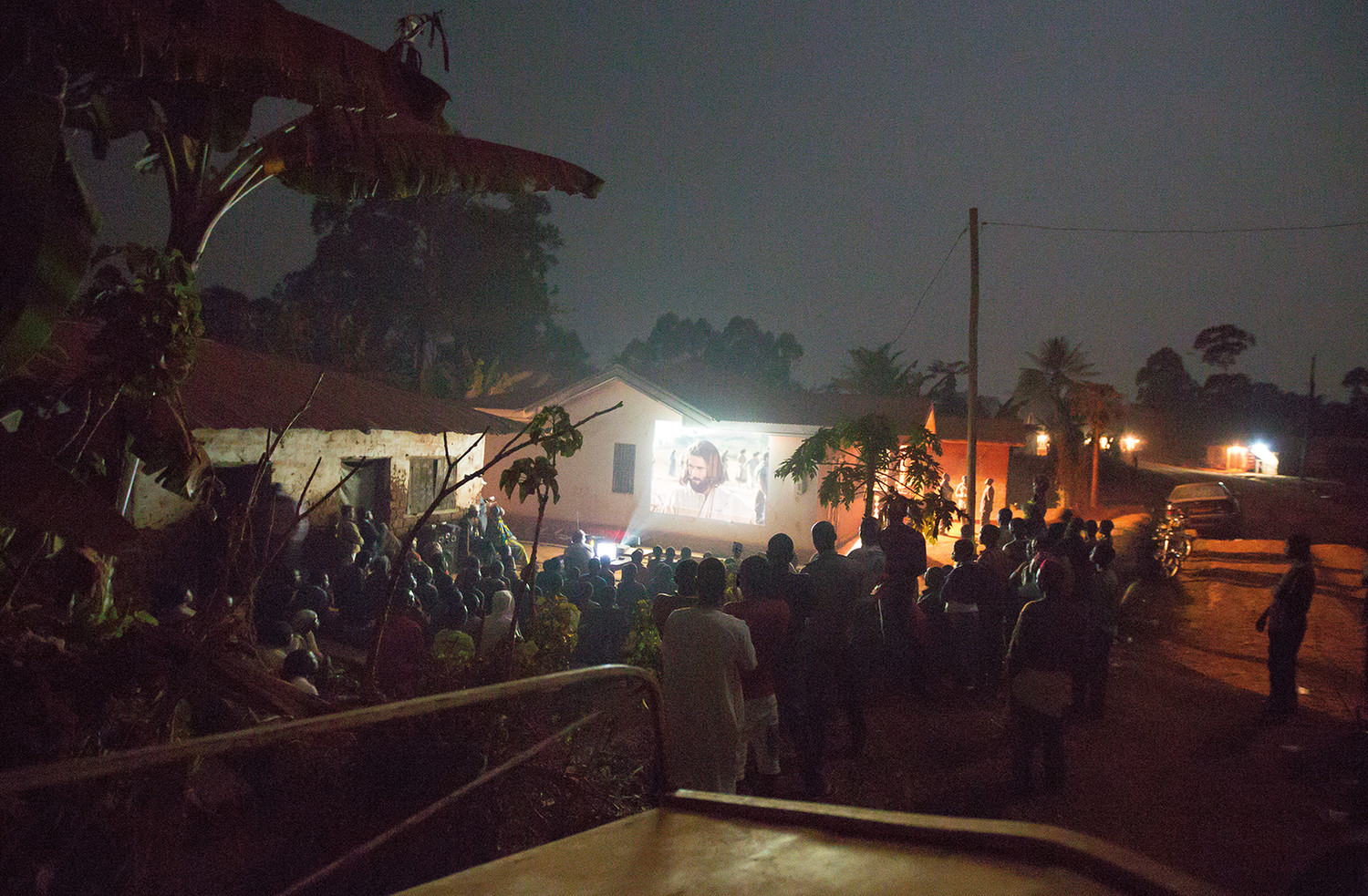As the Sunday morning service moved along at Mbamong Baptist Church in the village of Bambalang, Cameroon, I noticed a young woman standing behind the congregation. The pony-tailed woman (an usher, as I discovered later) carefully surveyed those in attendance. Her eyes scanned the 80 people listening to Pastor Pius Mbahlegue as he delivered his sermon in the Bambalang mother tongue, while the bright morning sunshine outside pushed the mercury towards another near 30-degree day this past January.
Every so often, the woman’s gaze zeroed in on a lowered head with slumping shoulders. Then quietly, she strolled over to the dozing man or woman and gently tapped them on their shoulder until they woke up. If the person sleeping was seated beyond the usher’s reach, she got the attention of a nearby worshipper and pointed to the dozer as a target for tapping.
I whispered to Wycliffe’s Dan Grove (supervisor of the Ndop Cluster translation, literacy and Scripture-use initiative, featured in this issue) that I have never seen church ushers designated to wake up sleeping people during a sermon. Grinning, he informed me that when he and his wife Melody first began serving here, the usher was equipped with a long stick!
Fortunately, dozing off in church is becoming a lot rarer in Ndop area churches.
As I talked to local pastors and Wycliffe personnel serving in the Ndop Cluster, they shared the same observation. People attending church are more alert and more engaged when sermons are preached from newly translated Scriptures in their mother tongue.
And they are more responsive. Dan recalls several years ago when he was helping to train Pastor Pius and Pastor Novethan Shanui so they could translate God’s Word for their own Bambalang people. After translating the Christmas Story from Luke, the passage was read in church.
“All of a sudden, everybody laughed,” recalls Dan. “And we thought, Oh, man, we’ve messed something up. This doesn’t really work well, or something’s wrong.”
After the service was over, Dan asked Novethan what was the matter with the draft translation. Why did it prompt laughter from the first-time hearers? The pastor said nothing was wrong. In the verse where Joseph and Mary put Jesus in a manger, the translators had used a more meaningful cultural equivalent for the Bambalang people who don’t raise cattle: Baby Jesus was laid in a kind of trough where salt is offered to sheep.
“They laughed because they understood it. All these years, they had been hearing about a manger [in English Bible versions] and didn’t know what a manger was. For the first time, really, the Scripture was theirs.”
The moral to these stories? It is better to laugh in church with understanding and appreciation, than sleep because of clouded or zero comprehension. Bible translation is key!
Now, on the practical side, I wonder if I should lobby for ushers in my church to wake up dozers?
